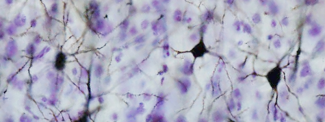The Institut du Cerveau - ICM scientists have recently discovered a mechanism which protects neurons from cell death. The loss of this protective mechanism may contribute to the degeneration of neurons in patients with Parkinson's disease.
In Parkinson's disease, scientists have reason to believe that the degeneration of a neuronal specific population, the dopaminergic neurons, is due, in part, to a mitochondrial dysfunction, the equivalent of the cell's energy powerhouse. Indeed, in some forms of Parkinson's disease, the dopaminergic neurons' death is caused by toxins targeting the mitochondria or by the mutation of genes, such as Parkin, which function is to maintain their quality. The proper functioning and survival of neurons gets, therefore, among other things, through the degeneration and replacement of the defective mitochondria.
The team led by Olga Corti in Alexis Brice's group has just described a natural mechanism of mitochondria protection in an experimental model of Parkinson's disease. This mechanism implies maintaining the expression of a mitochondrial protective enzyme, named HSD17B10, under the effect of Parkin, which role in the degradation of damaged mitochondria is also well described. The loss of this new protective mechanism may, therefore, contribute to the mitochondria's dysfunction and the degeneration of dopaminergic neurons in Parkinson's disease caused by the Parkin gene's mutation.
Sources
Parkin maintains mitochondrial levels of the protective Parkinson’s disease-related enzyme 17-β hydroxysteroid dehydrogenase type 10.







